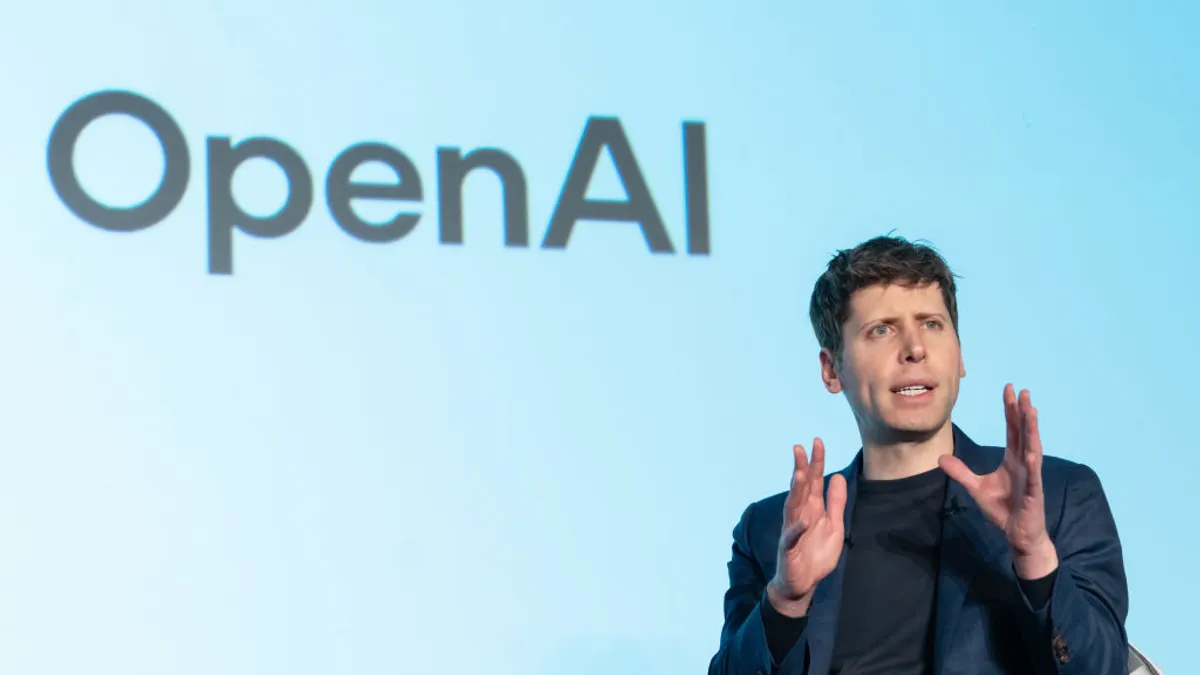Dive Brief:
- OpenAI has entered into a $38 billion multiyear partnership with AWS to increase its cloud infrastructure access for advanced AI workloads, the two companies announced Monday.
- AWS will provide OpenAI with access to Amazon EC2 UltraServers comprising thousands of Nvidia GPUs and the ability to scale to millions of CPUs to support its advanced generative AI workloads, the release said.
- “Scaling frontier AI requires massive, reliable compute,” OpenAI co-founder and CEO Sam Altman said in the release. “Our partnership with AWS strengthens the broad compute ecosystem that will power this next era and bring advanced AI to everyone.”
Dive Insight:
OpenAI’s deal with AWS follows a significant corporate overhaul at the AI provider, which included a restructuring of its partnership with Microsoft and gave the company more compute procurement flexibility.
The deal is also the latest sign of rising AI demand and enterprise spend on cloud infrastructure services.
Enterprise spend on cloud infrastructure increased $7.5 billion in Q3 2025 from the previous quarter, one of the largest sequential increases ever recorded, according to data from Synergy Research Group. The increase represents 28% growth year over year, with generative AI serving as a major growth driver.
AWS’s deal with OpenAI demonstrates the “rising capital intensity of AI,” as cloud and chip partnerships evolve into critical pieces for AI model providers, said Arun Chandrasekaran, distinguished VP analyst at Gartner. It’s also further concentrating compute with hyperscalers due to their ability to boost capital expenditures, as well as provide access to vast ecosystems and global networks, Chandrasekaran said in an email.
AWS, the market share leader, saw revenues climb to $33 billion in the third quarter, up 20% year over year. Amazon President and CEO Andy Jassy cited AI as a propellant for movement and growth within the company.
AWS leadership indicated during a Q3 earnings call last week that the company intends to continue making significant CapEx investments in AI and is aggressively expanding its compute capacity to keep up with demand.
As compute demand continues to rise, it will give way to a multicloud world that brings cloud companies and AI model providers closer together, Chandrasekaran noted.
“Compute constraints will continue to drive new ecosystem partnerships,” Chandrasekaran said.
The new partnership showcases the continued need for more compute infrastructure, but it also puts pressure on OpenAI to turn a profit, said Alan Pelz-Sharpe, founder of market research firm Deep Analysis. OpenAI recently completed its conversion to a for-profit company last week as part of its corporate restructure overhaul.
“For OpenAI, the deal means more access to compute power, though at a hefty price,” Pelz-Sharpe said in an email to CIO Dive. “For AWS, it’s another lucrative sale – though when it will actually see the money is open to question – on the books.”















